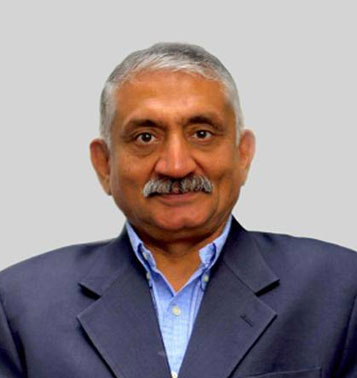PAFI VIEWS
Building trust with stakeholders
Author - Ajay Khanna

Building trust with stakeholders
The Public affairs & Policy landscape in India has metamorphosed gradually over the last two decades. Today, Policy professionals have become an interface between Business and Government for facilitating policy making & growth in Indian economy.
Last week, the 9th Annual Forum of the Public Affairs Forum of India (PAFI) witnessed this positively evolving spirit of transparent engagement of business and Government with a focus towards a greater economic agenda. Governments, both center and state, are willing to engage with corporate policy heads. I have always emphasized that Public Affairs function in the corporate setting is a cross-section of Corporate Affairs, Corporate Communications, Corporate Social Responsibility, Policy advocacy, Regulatory issues & Government relations with a long-term vision. It is, thus, their responsibility to ensure collaborative dialogue between Government, Industry, Civil Society and various stakeholders for building trust & long-term partnership.
The unprecedented impact of the pandemic and our attempt to grapple back to normalcy have re-aligned the prism of progress across the globe as well as in India. The vision for growth and development has become more encompassing. Inclusivity, diversity, sustainability and innovation are the mantras for India to become USD 40 trillion economy from USD 3.2 trillion economy.
Having traversed as a Public Affairs professional over last four decades, I see this transformation happening and a palpable positivity surrounding it. Here are 12 key messages I noticed from the discussions held at 9th PAFI Annual Forum:
One, the policy shapers are encouraging ideas, and industry stake-holders consultations are being undertaken consistently. PLI schemes are being explored through regular meetings with the corporate sector. The draft Telecommunication Bill was released on the eve of PAFI’s Annual Forum. During the Session, the ministry distributed the copies of the bill!
Second, the policy shapers are now being valued & seen as professionals with sector specific knowledge. Gone are the days when only CEOs would meet the ministers and the senior bureaucrats to apprise them with industries’ view point. Nowadays, it’s common to have engaging discussions among policy professionals and bureaucrats cutting across hierarchy. This is a very welcome change.
Third, the momentum in policy making has gathered credibility, no matter which Government is in power, it does more to encourage investment. Even if the Government changes, there is policy continuity especially at the state level.
Fourth, the Government is all ears. Advocacy should be done by presenting both pros and cons of the proposed policy changes, was the view of various speaker. Stand-alone speeches made way for engaging conversations with Ministers and Secretaries which shows their openness & willingness to engage with industry. Queries from the enthusiastic audience ranging from representation of women in politics, Government’s health policies for middle class, innovation or India’s stance at G20 were responded in a positive & collaborative spirit.
Fifth, there is a renewed enthusiasm from the states to engage and collaborate with policy professionals. States are keen on partnering to advocate their investment-friendly policies, skill-development initiatives and sustainable practices. Tamil Nadu joined as an encouraging partner state at the forum.
Sixth, the role of Policy professionals is transitioning from mere lobbying to a more knowledge oriented approach. From who you know to what your know. Nurturing of network, although remains a stronghold, fostering thought leadership through extensive research, developing sectoral white papers and preparing reports is the key.
Seventh, transparency in interactions has developed pace. Besides, economic issues, sustainability, ESG have gained ground during conversations. Dialogues and debates among stakeholders have grown more organic.
Eighth, this Government believes, speed and simplification of regulations are the fulcrum to a balanced scalability. We are seeing age-old laws are being reformed, de-criminalisation of archaic regulations being introduced to enthuse ease of doing business or as we say in Pafi -pleasure of doing business.
Ninth, the path to women empowerment dotted with financial inclusion, safe environment to work, access to education and hygienic conditions are being considered seriously with a view to reform the way gender is seen in our country.
Tenth, one must highlight India’s geopolitical pragmatism and cultivating of strategic ties enabling significant global influence even though India’s G 20 presidency is coming at a time when there were multiple challenges in the world – Ukraine, supply chain disruptions, high global debt, inflationary pressures etc.
Eleventh, youth and Gen Z have taken the country by storm. With its young population and conducive policies, India is able to nurture an ecosystem favourable for entrepreneurship. The start-ups are dynamic, innovative and positively disrupt the market. Gen Z is increasingly charting new territories and reimagining the traditional toolbox.
The last and the most important is building trust. Deliberation and consultation between Government and the corporate sector should inculcate a belonging in the process of policy formation
Going forward, Debate-Dialogue-Discussion, will accelerate the advocacy and stakeholder linkages. The willingness from decision-makers in the Government is visible. Time is ripe for professionals for a productive policy engagement with a thorough understanding of the business, economics and sustainable growth path. Interestingly, the scope of policy professionals has grown significantly over the past decade.
The two-day Annual Forum which had around 6 Ministers, 10 Secretaries and more than 60 panellists clocked all 14 sessions timely despite the capital drenching in the unprecedented, incessant rain. Outlook is changing indeed. Transformation is happening and strategic responsibility of policy professionals is increasing.


